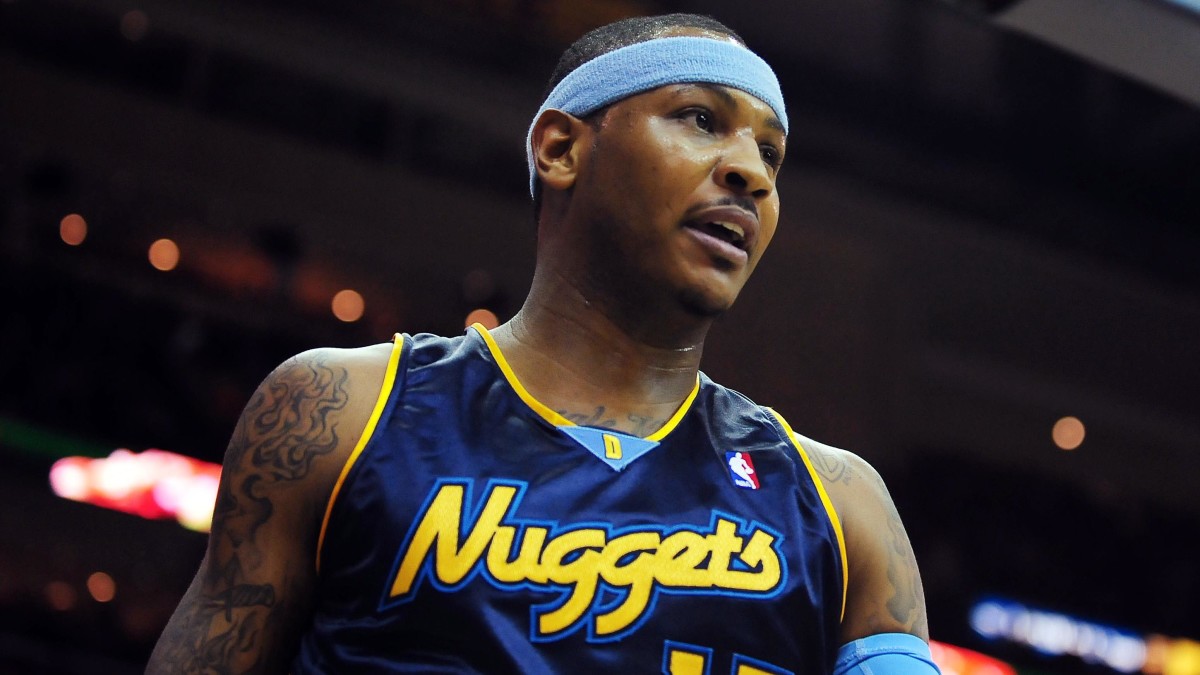How Detroit’s 2003 Draft Mistake Altered Carmelo Anthony’s Career

Only two lottery picks from the 2003 NBA draft won a championship before leaving the team that picked them. One was Dwyane Wade. The other was Darko Miličić. This quirky little fact does not change the Pistons’ Darko mistake, but it does put it in context: The draft is a means to an end. Botching a pick and winning anyway is a much better outcome than nailing it and failing to capitalize.
The Miličić choice (which did not seem foolish at the time—Jay Bilas gushed about him on ESPN that night) is usually framed as a what-if for Detroit. What would it have meant for the Pistons if they had drafted Carmelo Anthony instead of Miličić? But in the wake of Anthony officially retiring, let’s flip that around:
What would it have meant for Anthony?
Anthony retired at No. 9 on the NBA’s all-time scoring list. He was probably a bigger figure in the culture of the game than on the court—he never made first-team All-NBA—but he was a hell of a player, and the popularity was well earned. Anthony seemed born to get buckets.
He was also dogged for much of his career by the nebulous accusation that he was not a “winner.” The basketball argument was based on Anthony leaning on his midrange game, which fell out of favor with the rise of analytics; his defensive limitations; and the perception he was a ball stopper on offense. The fact that he never won was held up as proof. But what if he had?

The season after the 2003 draft, with almost no contribution from Miličić, the Pistons won the championship. The next year, they were one quarter away from winning again. The year after that, they won 64 games. There is no way to know exactly what they would have done with Anthony instead of Miličić—we can’t assume everything else would have been precisely the same—but it’s reasonable to think they would have contended for his first few years, and there is a strong chance they would have won a title.
Anthony would have gone through most of his career with a championship ring and the credibility that goes with it. Everything he did and said would have been viewed through that filter. Anthony led Syracuse to an NCAA championship in his lone season there. If he had been the first 2003 draftee to win a title—while LeBron James’s Cavs failed to break through—that would have infected every conversation about him.
He wouldn’t have had to defend his game to nearly the degree he did. If he ended up in New York, and things still ended poorly there, Anthony could have credibly defended himself by saying, “Hey, I know what it takes to win a championship.” He would not have had to chase a ring. But if he did anyway, he could say he was accustomed to winning and didn’t want to compromise.
He could have been the same player and been perceived differently. Winning does that, often to an illogical degree. We saw this every time Kobe Bryant fired up a highly contested shot with the game on the line. Bryant was an undeniable gunner, and he was about as efficient offensively as Anthony. But because he had won three titles early in his career, Bryant could always say that whatever he did, he did in the name of winning.
This is obviously not a perfect comparison, because Bryant was a much better player than Anthony, especially defensively. It does give us a sense of how different Anthony’s journey would have felt.
The Nuggets drafted Anthony, lost in the first round in each of his first five seasons, made a run to the Western Conference finals, then lost in the first round again. That summer, James and Chris Bosh joined Wade with the Heat. Anthony, who was not a free agent that summer, seemed left out … but if he had won a title already, he would have been cast as the old-school superstar with the old-school game who didn’t cop out and form a superteam. This would have been reductive and kind of twisted—using Anthony as a rhetorical pawn to take shots at his friends—but it would have happened.
This all assumes Anthony would have been the same player. But playing for a defense-first, veteran-laden contender also might have forced Anthony to be a more complete player early. The Pistons would have been better off with Carmelo. But he would have been better off with the Pistons, too.
“I’m at peace,” Anthony told my colleague Chris Herring. “That doesn’t bother me no more; that idea that you’re a loser if you don’t win a championship. For me, I’ve won. I won back in 2003, the night I shook David Stern’s hand on that [draft] stage.”
